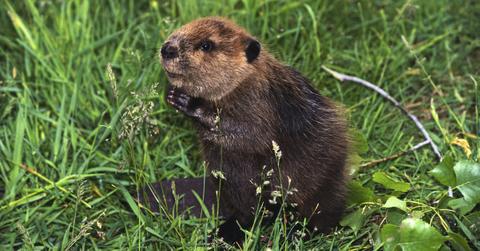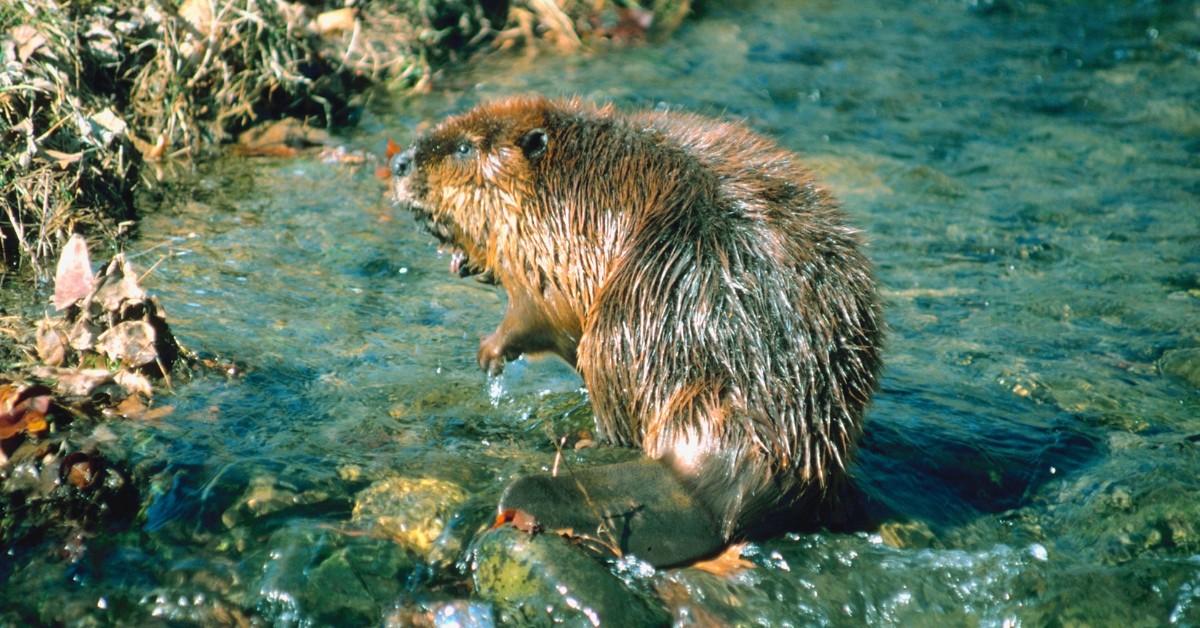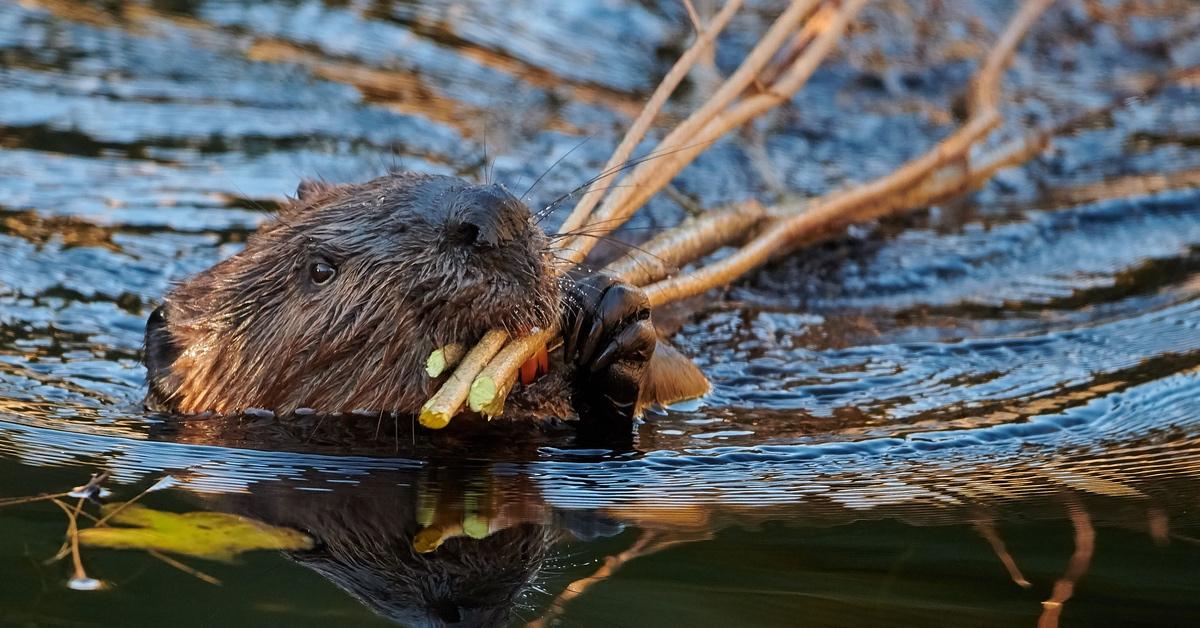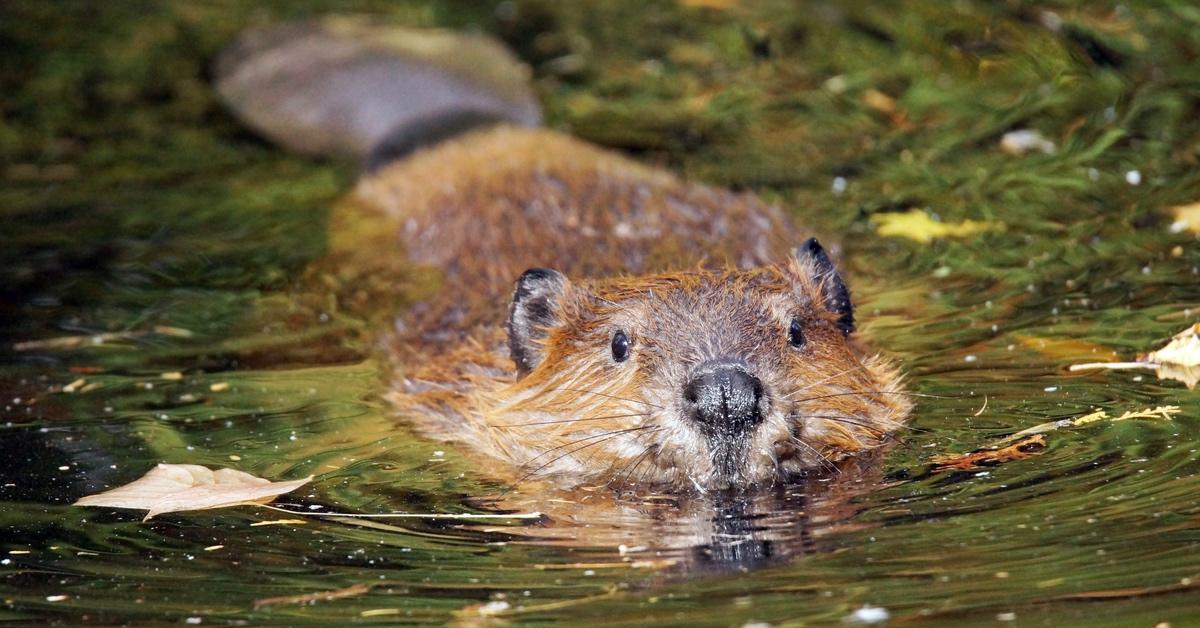Do Beavers Eat Wood? What You Need to Know About the Cute Herbivores
Beavers eat a variety of interesting things, including some aquatic plants.
Updated July 17 2024, 1:35 p.m. ET

When you think of beavers, you may think of the cute little brown creatures that spend most of their life toiling away in waterways, cutting down trees, and building dams where they spend their days. Because so much of their existence seems to happen under the cover of their homemade shelters, many of us know very little about them other than what we've seen on television or in movies.
That leaves us with many questions about the life of a beaver, including where they live, how they stay warm when they're in and out of the water during winter, and even such basic facts as what beavers eat. When it comes to the diet of nature's carpenters, we know a lot more than we would've thought! Keep reading to find out more.

Do beavers eat wood?
The most natural question about a beaver's diet likely involves what we see them munching on the most: wood. Well, it would appear that they use the woody substance for more than just stopping up rivers and creeks because according to the Smithsonian's National Zoo & Conservation Biology Institute, beavers really like noshing on wood.
Some of their favorite woody snacks even include the materials they're most likely to reach for when it comes time to build, as well. Beavers love to eat willow, birch, aspen, poplar, and maple!
Do beavers eat fish?
It sounds like beavers make good neighbors and don't eat the fish they share the water with. In fact, as herbivores, beavers don't eat any other creatures they live alongside, including turtles, frogs, and mollusks.

What do beavers eat?
In addition to wood like mentioned above, beavers do have a few favorite foods that they will always reach for when they get hungry in the wild, including:
- Leaves
- Aquatic plants
- Woody stems
Beavers living in captivity have a bit more varied diet, and have been known to eat items that they don't easily access in the wild, like rodent chow and mixed vegetables. However, it's important to note that beavers are always best in their natural habitats, and that keeping beavers (or any animal!) in captivity can have negative effects on their emotional and physical wellbeing.

Who are some natural predators of beavers?
Beavers may be quick swimmers and able to be agile when they're in the water, but once they're on land, it's a different story. Beavers are easy prey for certain predators like wolves, coyotes, bears, wolverines, foxes, lynxes, and sadly ... humans. Humans have been known to capture beavers and sometimes even kill them to prevent them from building dams that could potentially destroy property.
Additionally, baby beavers who remain mostly inside the nest until they are mature, can be taken by otters. Young and immature beavers who venture outside the next unprotected have also been known to get picked off by birds of prey, who have a much easier time flying off with the creatures before they've fully developed.